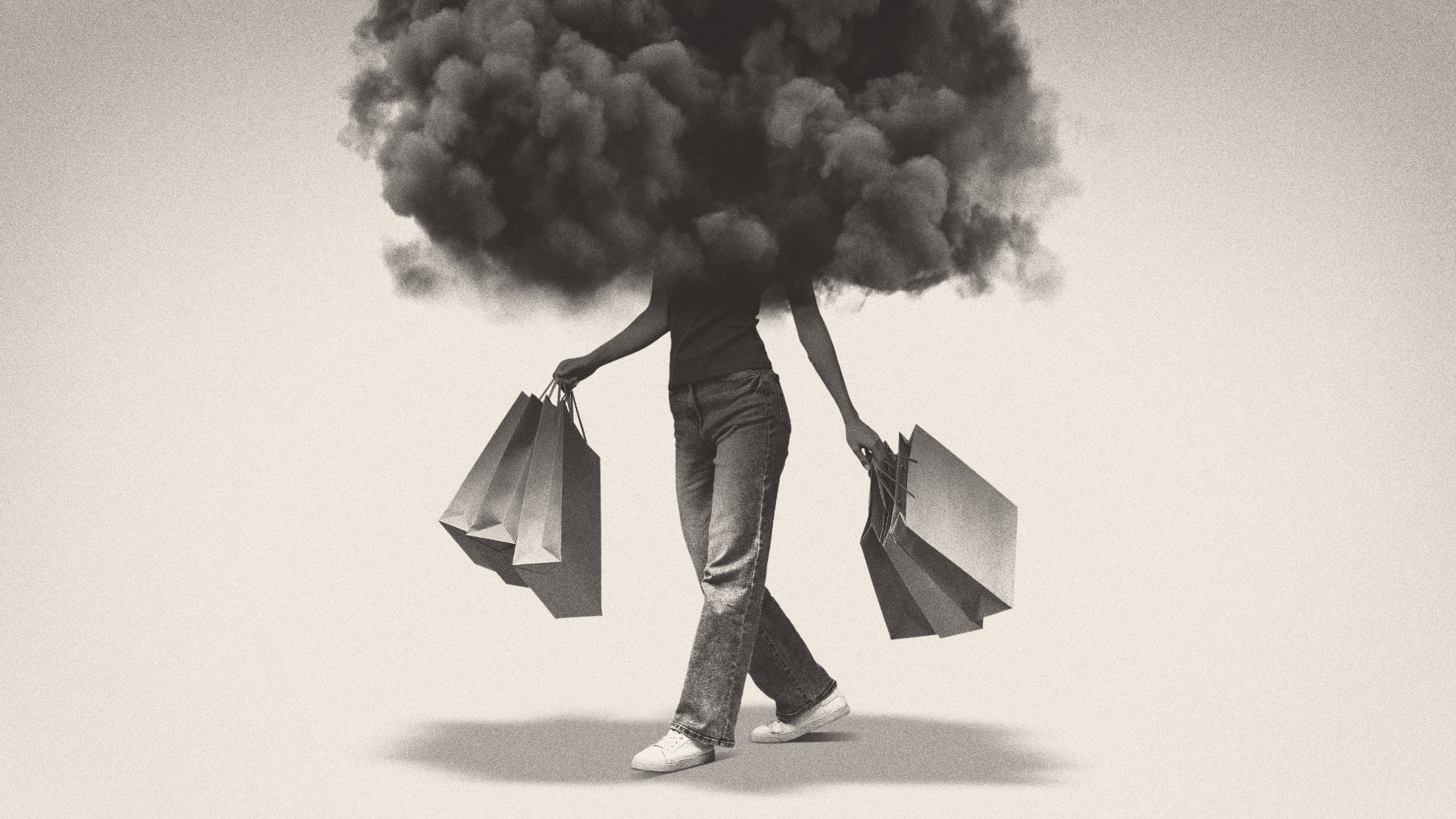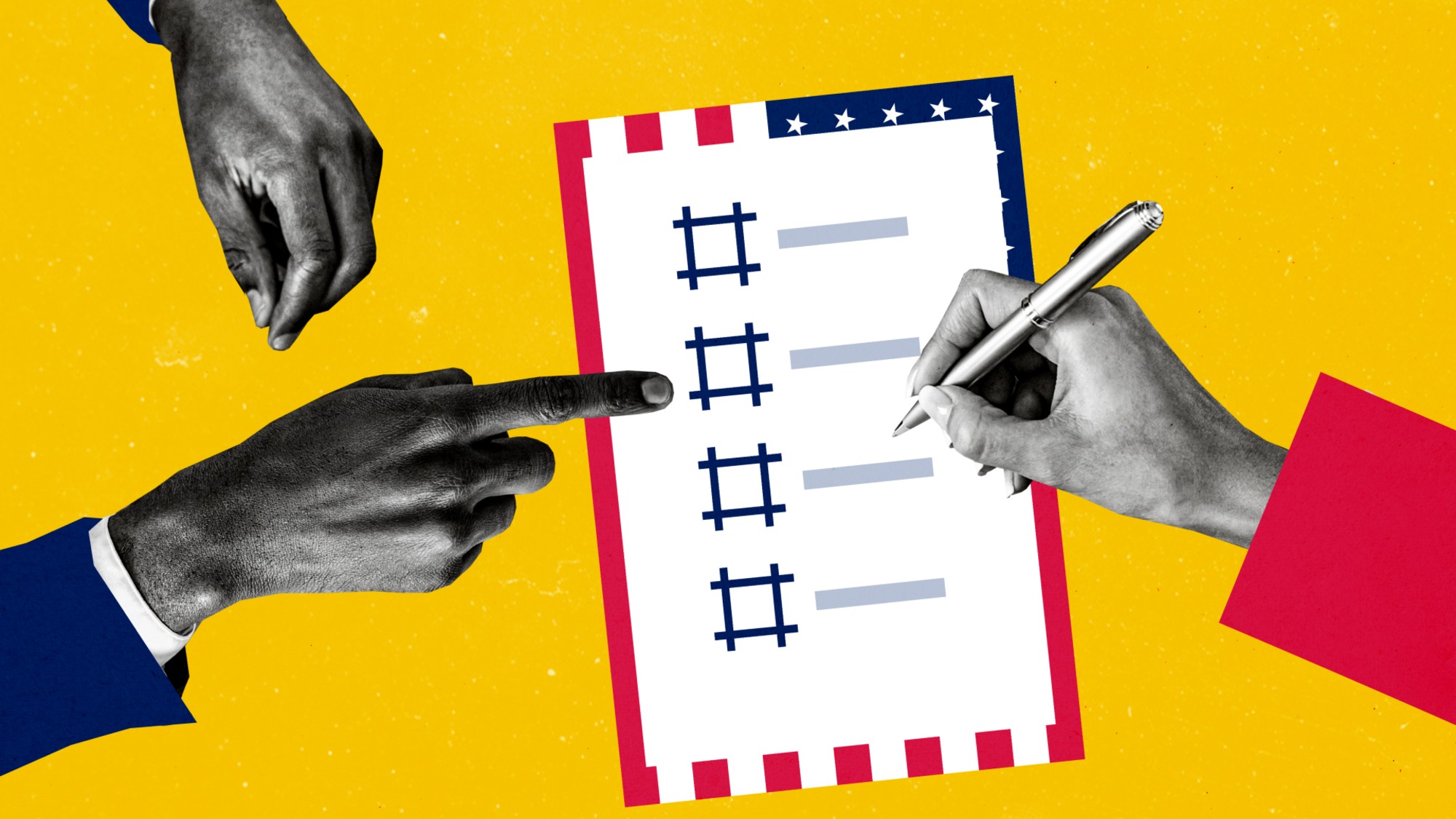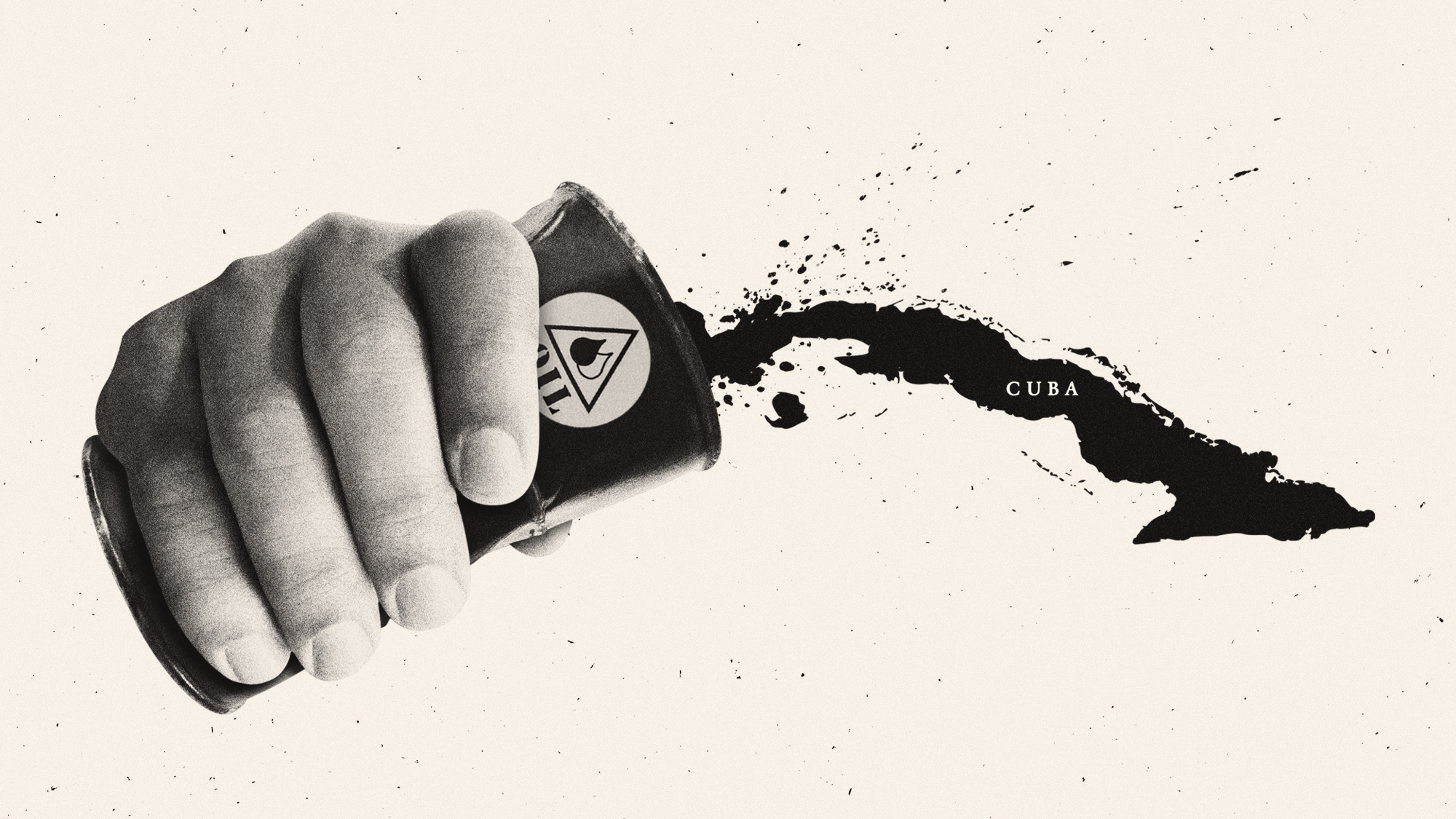Trump tariff uncertainty casts a dark cloud over Black Friday
Retailers and shoppers alike are starting to reassess their seasonal prospects as the Trump administration’s efforts to upturn the global economy start hitting close to home


A free daily email with the biggest news stories of the day – and the best features from TheWeek.com
You are now subscribed
Your newsletter sign-up was successful
In just a matter of days, millions of people will rouse themselves from their tryptophanic stupors to brave the crowds in search of marked-down electronics and deals on home goods. But while Black Friday typically stands as an annual corrective for the retail industry — “black,” in this case, meaning “no longer in the red” — this year’s shopping extravaganza will be tempered by the same uncertainty that has permeated the global economy all year. As the Trump administration continues its agenda of massive global tariffs, a growing number of consumers and retailers alike are looking to Black Friday with a little more trepidation than in years past.
Big crowds and high prices
Some 186.9 million shoppers are expected to engage in some form of retail therapy over the five-day stretch from Thanksgiving to Cyber Monday, 130 million of whom are anticipated on Friday in particular, said the National Retail Federation in a release. “Unprecedented numbers” of shoppers aside, said Reuters, customers are still “likely to curtail their spending” thanks to tariff-affected prices. Although “sticker shock alone” might be enough to “deter” some Black Friday shoppers, others are “budgeting for the increased costs of other necessities.”
This is a “very strange year” for purchasing, with a “lot of challenge on the retail front,” said Sonia Lapinsky, leader of fashion retail at AlixPartners, to Bloomberg. After weathering the first round of tariffs this summer, companies “just don’t have the room” to offer deals as they have in years past.
The Week
Escape your echo chamber. Get the facts behind the news, plus analysis from multiple perspectives.

Sign up for The Week's Free Newsletters
From our morning news briefing to a weekly Good News Newsletter, get the best of The Week delivered directly to your inbox.
From our morning news briefing to a weekly Good News Newsletter, get the best of The Week delivered directly to your inbox.
Although tariffs have “always been a behind-the-scenes cost factor” for retailers, this year their impact is “far more visible,” said Kiplinger [The Week and Kiplinger are both owned by Future Plc]. Black Friday deals usually involve retailers “buying huge quantities in advance” at discounted prices, but tariffs have raised those costs, lowering profit margins. Add to that “lingering inflation and higher shipping and labor costs,” and stores are “opting for smaller markdowns, bundled offers or heavily restricted ‘doorbusters’” deals which, while less dramatic than deep price cuts, are designed to “protect profitability.”
‘More strategic’ shopping
Even before stores began ramping up their Black Friday promotions and deals, many consumers began shopping early this year to “make the most of sales events like Amazon Prime Day” and to “get ahead of tariff-induced price increases,” said CNBC. Shoppers are being “more strategic” in their purchasing plans, said RetailMeNot retail insights expert Stephanie Carls to the network. People are using “every tool that they can to protect those budgets.”
While big-box retailers have stocked up on inventory bought pre-tariffs to “keep their prices consistent and their margins padded” enough for the Black Friday rush, independent sellers have “shied away from blowout sales” to focus on more “transparent everyday pricing,” said New York magazine. But for as much as the shifting sands of President Donald Trump’s tariff policies may have cast a pall over this year’s Black Friday, the “real trouble” might be yet to come once stockpiled goods are “sold through and there’s a new year to plan for and the tariffs are likely unchanged.”
A free daily email with the biggest news stories of the day – and the best features from TheWeek.com
Rafi Schwartz has worked as a politics writer at The Week since 2022, where he covers elections, Congress and the White House. He was previously a contributing writer with Mic focusing largely on politics, a senior writer with Splinter News, a staff writer for Fusion's news lab, and the managing editor of Heeb Magazine, a Jewish life and culture publication. Rafi's work has appeared in Rolling Stone, GOOD and The Forward, among others.
-
 Political cartoons for February 15
Political cartoons for February 15Cartoons Sunday's political cartoons include political ventriloquism, Europe in the middle, and more
-
 The broken water companies failing England and Wales
The broken water companies failing England and WalesExplainer With rising bills, deteriorating river health and a lack of investment, regulators face an uphill battle to stabilise the industry
-
 A thrilling foodie city in northern Japan
A thrilling foodie city in northern JapanThe Week Recommends The food scene here is ‘unspoilt’ and ‘fun’
-
 How are Democrats turning DOJ lemons into partisan lemonade?
How are Democrats turning DOJ lemons into partisan lemonade?TODAY’S BIG QUESTION As the Trump administration continues to try — and fail — at indicting its political enemies, Democratic lawmakers have begun seizing the moment for themselves
-
 ICE eyes new targets post-Minnesota retreat
ICE eyes new targets post-Minnesota retreatIn the Spotlight Several cities are reportedly on ICE’s list for immigration crackdowns
-
 Judge blocks Hegseth from punishing Kelly over video
Judge blocks Hegseth from punishing Kelly over videoSpeed Read Defense Secretary Pete Hegseth pushed for the senator to be demoted over a video in which he reminds military officials they should refuse illegal orders
-
 House votes to end Trump’s Canada tariffs
House votes to end Trump’s Canada tariffsSpeed Read Six Republicans joined with Democrats to repeal the president’s tariffs
-
 How did ‘wine moms’ become the face of anti-ICE protests?
How did ‘wine moms’ become the face of anti-ICE protests?Today’s Big Question Women lead the resistance to Trump’s deportations
-
 Judge blocks Trump suit for Michigan voter rolls
Judge blocks Trump suit for Michigan voter rollsSpeed Read A Trump-appointed federal judge rejected the administration’s demand for voters’ personal data
-
 Trump’s plan to ‘nationalize’ US elections
Trump’s plan to ‘nationalize’ US electionsTalking Points States oversee voting. Will Republicans take over?
-
 Will Trump’s oil push end Cuba’s Communist regime?
Will Trump’s oil push end Cuba’s Communist regime?Today’s Big Question Havana’s economy is teetering
